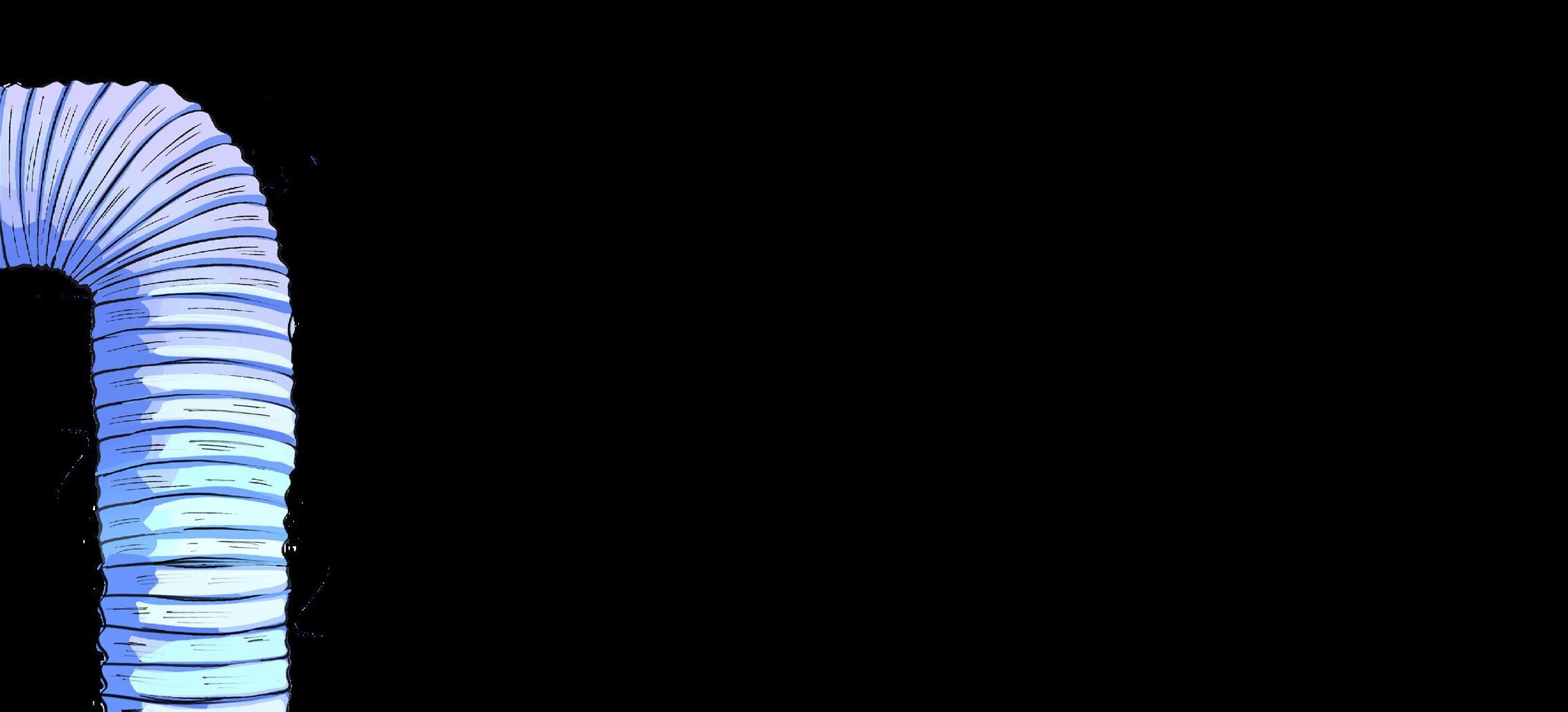
12 minute read
A Life In Many Genders by
Kalil Cohen
mean to me. But it is often true in relationships with colleagues and cisgender friends as well. Before transition, I thought that if I could materialize the reality I felt inside, making my physical body part female and part male, people would believe me when I told them that I was trans, would see that I was non-binary. But what most people believed instead is that I wanted to be male instead of female, or that I just “thought” I was male.
Our culture has a long way to go before we will have a shared understanding of gender identity and expression, and how these relate to bodies and biological sex. So, gender variant folks navigate the systems in which we find ourselves. And as my desires shifted and morphed over time, so have my strategies for playing this gender game. Now, some people say “he” and others “she”, and I don’t correct them. Neither option is right, but neither are they wrong. In another few decades perhaps everyone will know how to use non-binary pronouns like “they”, “ze” or just my name. For now, my chosen family and community of trans and genderqueer folks and allies understand the complexity of my gender, and most of the rest of the world doesn’t.
Even though it might appear that I’ve “gone backwards” or “de-transitioned”, that is not my experience at all. My gender expression is a continually evolving aspect of myself, and I am wholly different than I was 15 years ago, when I was last read as female by strangers. My deeper voice feels so natural to me, like a true reflection of how I would imagine sounding. And even though I don’t drop into the depth of my low range as much anymore, I still enjoy the resonance and sound of my testosterone-lowered voice. Top surgery has turned out to be a more complex aspect of my journey, however. I continue to enjoy the convenience and contour of my flat chest, but I now feel conflicted about the loss of my mammary glands, an important aspect of my reproductive capacity and life-giving abilities. And while many people with intact mammary glands are unable to nurse, I am sad that this intimate experience of parenthood would not be an option for me.
And yet, I don’t regret physically transitioning. I don’t regret transitioning like I don’t regret former romantic partnerships. Even though I am no longer in love with my ex wife, I don’t lament the six years we spent together, and am grateful for how that experience has shaped the person I am today. I have gone through a lot to get to where I am now, but every part of this path has been crucial to my development as a person navigating the gender binary. The level of self-acceptance, comfort with my body, and connection with my spirit that I now enjoy is priceless.
I don’t know how all of this would have unfolded without the years of living as male. What if I had gone on my womb reclamation journey while still feeling frustrated and trapped by the label of woman? What if I had never experienced the feelings of being trapped and frustrated by the label of man? While it is difficult to transition socially again, I don’t think these deeper understandings could have occurred without the invaluable experiences of the past. Now that all this has come to pass, I know that this may not be the last time I write words such as these. I now truly understand that expressing my unique gender and navigating this culture of gendered limitations and assumptions will be a lifelong journey for me. I am curious to see what else this path has to teach me, and how I can help illuminate the complexities of gender for us all.
In sharing my story with you, I hope to expand the narrative of what a life in many genders can be. This journey is uniquely mine and represents only one of a multitude of trans and genderqueer experiences. Also, I am grateful for the economic privilege and social agency that have allowed me to make these ongoing shifts to my appearance, and to how people read me while maintaining employment and familial connections throughout my journey.
Author Bio: Kalil Cohen (ze/zir/zem) writes personal narratives and poetry to heal and beautify the wounds of personal and ancestral trauma. Ze also leads rituals to support folx in connecting with Transcestors and ancestors. Kalil’s short films have screened at film festivals from Minneapolis to Mumbai to Melbourne. As a gender rights advocate, Kalil has appeared on Democracy Now! and Current TV, and written for online and print magazines including Bitch and The Progressive.
SOCIAL MEDIA:
Instagram: ritualsforresilience
Website: kalilcohen.com

I now know that this is not the case. Some unfortunate people come out of the closet only for the people around them to force them back in and lock the door. I was one of these people.
When I came out to my father, he was serving as the bishop of our ward – the man in charge of the spiritual wellbeing of the local church congregation. He was always busy, and when he wasn’t at work or at church, he was tired, too worn out to interact much with us.
So I made the foolish choice of coming out to him while he was sitting behind the desk in his office at the churchhouse.
I claim it was my choice, but I do feel like my hand was forced – the appointment had been set weeks ago by the ward clerk. It was supposed to be a meeting between me and the bishop, checking in on how I was coming along in finishing the goals of the former “Young Women’s” program, which the girls of the ward were being encouraged to complete before it got phased out for a new program.
He had set up these interviews with all of the Young Women, seemingly in order to turn up the pressure and get as many as he could to finish the goals.
Participating in Young Womens, especially when it came to working on the program’s goals, was always a source of discomfort and dysphoria for me, and I had no interest in completing the program, but my father, unaware of my emotional inhibitions, had been pressuring me for weeks, both as my father and as the bishop, to complete the goals. It felt like every interaction we had revolved around those goals, and every time I talked to him I had to choose between lying about intending to complete the program, or being truthful about why I wasn’t going to work on it anymore, which was a conversation that would inevitably lead to me being forced to reveal facts about my gender identity and lack of belief in the church that I was afraid my father would not have welcomed.
For a long time I chose to lie, and it weighed heavily on me. So with the meeting looming, I decided that it was just a matter of bravery. After all, isn’t telling the truth always the right thing to do? And aren’t parents supposed to love and support their children unconditionally?
Bolstered by this naive reasoning, I resolved to come out to my father during the interview. When he asked how my work on the goals was coming along, I told him the truth: I hadn’t worked on them for a long time and I had no intention of finishing the program. I told him that the program’s foundations of developing the skills of successful women and mothers were not things that I was comfortable with, because I did not feel they applied to me. I told him that I was actually a boy, and that I had felt that way for a long time.

The look in his eyes chilled me to the bone. It was anger and disbelief and righteous indignation all rolled up into one icy glare. He was silent for a few heart-pounding moments, then he spoke.
At first I thought, against all the odds, that he was going to be supportive, but over the course of the conversation it became clear that he thought my trans identity was just a “struggle” I would have to overcome, a trial placed in my way to strengthen my eventual faith in the gospel and happiness in womanhood. I tried to hold out, to be assertive and show him that I was who I said I was, but it was to no avail. In the prayer he gave to end the meeting, he asked God to guide me through my confusion. Afterward he hugged me and told me not to worry, that even with all that I was “struggling with”, I was still a “beautiful daughter of God”.
I was devastated and disappointed. And that was only the beginning of the mess.
That night, he told my mother about our conversation, despite me never giving him permission, and despite the fact that anything said in the Bishop’s office is supposed to be confidential. I could hear her sobbing. The sound still haunts me.
Over the next few days, my parents kept cornering me and instigating conversations. They asked me who else knew about what I was “struggling with”. I made the mistake of mentioning a friend at school who was agender, and they started insinuating that maybe this friend had influenced me into doubting my womanhood. I told them that I knew I was trans before this friend came out to me, but that didn’t sway them, and they continued to show their suspicion and distrust any time I talked about any of my friends.
They told me I shouldn’t say anything about my gender identity to my little brother, because they didn’t want to “make things hard for him”. A few days later, they heard my brother calling me by my nickname (which has the benefit of being gender neutral as well as three syllables shorter than my given name) and they told him, while I was obviously within earshot, that he should use my full name because "it’s a beautiful name" and "it shouldn’t go to waste".
Once, after a long argument in which I kept trying to explain why being seen as a boy was important to me, my father asked me if I ever felt unsure or doubtful of whether I was really “not a girl anymore”. I fell into his trap, trusting that his question was genuine, and I admitted that there were moments when I wondered if it might be easier to just try again living as a girl. He told me that those thoughts were my “true female spirit” crying out against the cruelty I was doing to her by pretending to be a boy.
When I continued to be stubborn about my gender, they insisted on taking me to therapy. Eventually, I agreed, hoping that a qualified therapist would take my side, or at least be able to help my parents see that their actions were harmful. I shouldn’t have gotten my hopes up.
The “therapist” they took me to worked for Family Services, a church-run organization, and I doubt he was actually a licensed therapist. He asked me what name I wanted to go by but never once used it. He dominated all of our sessions talking about how he thought I should think about my “gender challenges”, and the few times he did let me talk or ask me questions, he would tell my parents exactly what I had said at the end of our sessions.

I learned to stay silent or nod and smile when he asked questions. I grew to despise everything about my situation and wanted nothing more than to stop going to therapy, and I viewed the arrival of Covid-19, with its office closures, as a blessing.
That feeling didn’t last. With office closures came school closures, and I was stuck at home, with no respite from the relentless attack from my parents. Eventually, I grew tired of fighting a battle I was never going to win. I stopped correcting them when they intentionally misgendered me. When LGBTQIA+ issues were shown on the news or talked about around the dinner table, I kept my head down and my face blank.
Later, when they asked me if I’d found comfort and peace after my “confusion” and if I was okay being “our [birth name]” again, I put on a smile and said “of course”.
It was official. My trans identity, in their eyes, was only a phase. They had sheltered their cherished daughter through the storm of the adversary’s lies!

In reality, their actions brought me to the brink of destruction. Those moments when it seemed like it was worth trying to live as a girl again? They were unbearable. They didn’t come because I actually felt like a girl, but because I was so emotionally exhausted by trying to prove my gender to people who would never accept it. But at the same time, I was afraid of the idea that any part of my brain would want to try to be a girl again. What if that meant I really was a girl?
What if my dad was right, and I was fighting against my own “female spirit”, and destroying my relationship with my family in the process?
Recloseted by Anonymous

The battle between the part of me that wanted to give in just to finally gain some respite and the part of me that was repulsed by any notion of being a girl put a massive amount of stress on me, causing very strange emotional responses.
I began to overanalyze everything– all of my behaviors and every interaction I had with other people–all on the basis of whether it might reveal that some inner “female spirit” existed. Ismywritingstyleagirl’s writing style? Do I walk like a girl? Is my relationship withmybrotherthatofanoldersisterratherthanan olderbrother?Whereisthedifference?DoIthinklike agirl?
I withdrew even further from my family. I stopped being able to enjoy reading, which had always been my escape from my world, because I was convinced that something in the way I experienced reading was inherently female, and the idea sickened me. I wasn’t safe inside my own brain. For a long time, the only relief I could find from this onslaught was when I was asleep, because it was the only time I wasn’t constantly thinking in circles, obsessing endlessly over every tiny detail of my life. I eventually became able to compel myself to go to sleep. For hours each day, I would force-shutdown my own brain, consigning myself to the groggy sickness that came from oversleeping rather than trying to deal with my racing thoughts.
In short, I was miserable. In trying to coerce me into seeing myself the way they thought I had to be, rather than trusting that I knew my own heart and giving me freedom to be myself, my parents had sacrificed my wellbeing at the altar of their worldview.
It took me a long time to get better, but I eventually did. The first step, in my case, was the vital choice to stop fighting. Acknowledging that I did not have the ability or the energy to change my parents’ minds at that time gave me space to rediscover who I truly was, rather than just who I’d morphed myself into in my attempts to resist being rewritten by my parents. I was able to step back. I told myself, “whatever I am–a boy, a girl, or anything else– that will be okay.”
With that foundation, I was finally able to start healing from my spiraling, cyclic thoughts, letting them go rather than grabbing at them to hold under scrutiny. I was able to be compassionate with myself. Gradually, I even regained the “ability” to read without feeling dysphoric and sick.
I was once again healthy. And I knew who I was. I was still the guy I had always been.
I have found the lasting impacts of being recloseted to be quite interesting. For one thing, experiencing authenticity, no matter how brief and costly it was, made it harder to go back to how I’d been living.
When in-person school resumed, I could never quite fight the feeling of being one degree removed from all of my endeavors. After all, it couldn’t really be me playing a song up on stage or walking at graduation when some other kid’s name was on the program. Nor could I help the feeling that I was lying to every person I met right out of the gate, the moment I introduced myself.
The feelings of separation and falseness I dealt with as a result of being recloseted have since receded, just as the spiraling thoughts and obsessive selfscrutiny did back then. Just as I did back then, I evaluated and accepted that I did not have the ability to safely change my circumstances, then gave myself compassion and space to feel whatever I needed to feel and be whoever I needed to be while I waited for my right time to act. With this approach, already tried and tested, I was able to survive until I could move out and begin to live as myself.
While I wish that I’d never had to go through the pain of being recloseted, I can say that the authenticity available to me, hand in hand with the coping skills I learned along my journey, have felt all the more rewarding and well-earned because of it.
So, to anyone who’s found themselves back inside a closet they did their best to leave behind: Be wise, and bide your time if you must. Be as patient and compassionate to yourself as you can. The reward is worth any wait.
AUTHOR BIO: Anon, a 19 year old transmasc, attended his first year of college at an institution located in an area where the majority of the population adheres to a religion that is antiLGBTQIA+, often explicitly so. They grew up in a religious, conservative, higher-income household, which gave them a lot of mental baggage to unpack and a lot of concepts to deconstruct and relearn. Anon is not on social media and we are respecting their privacy boundary.








